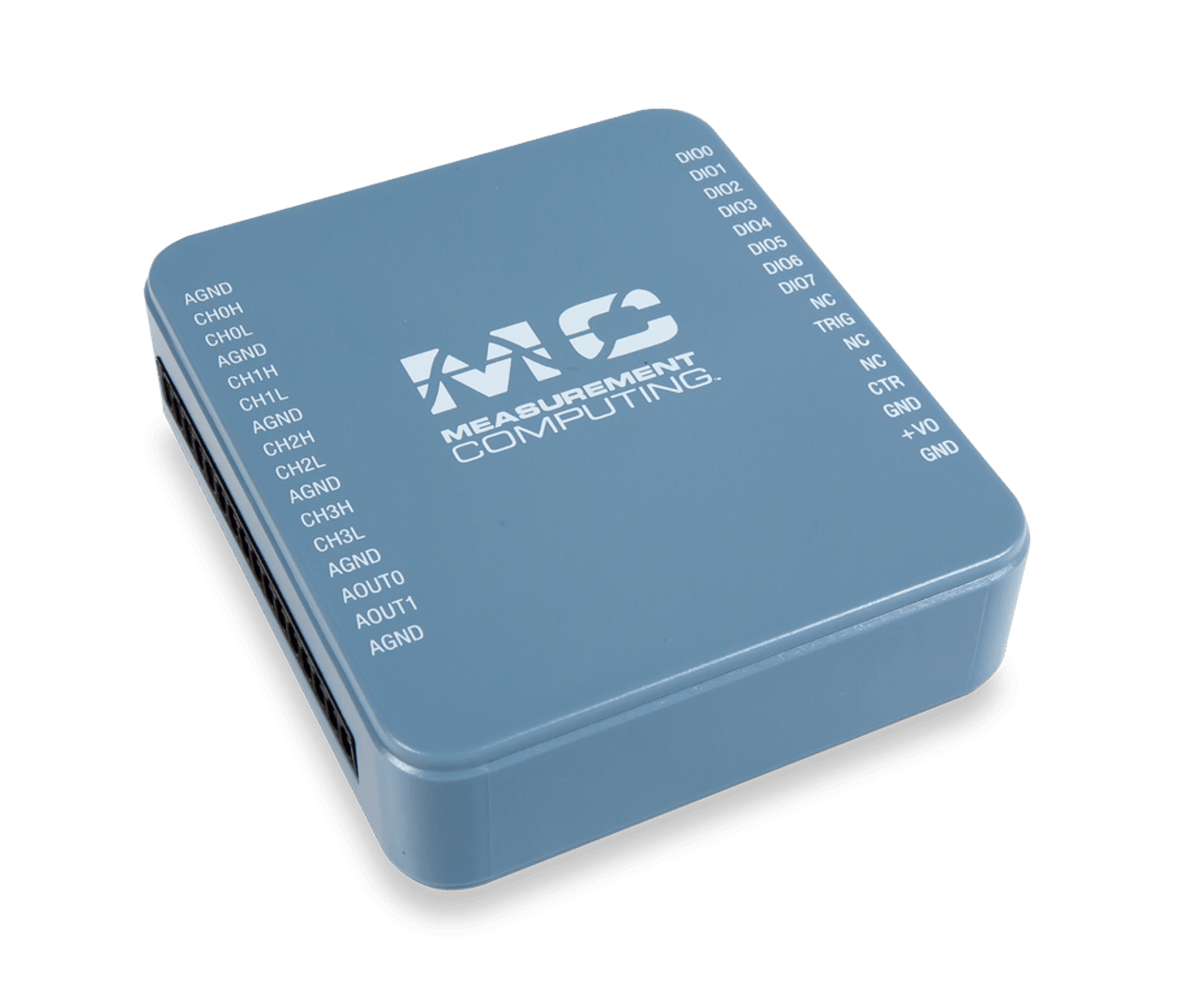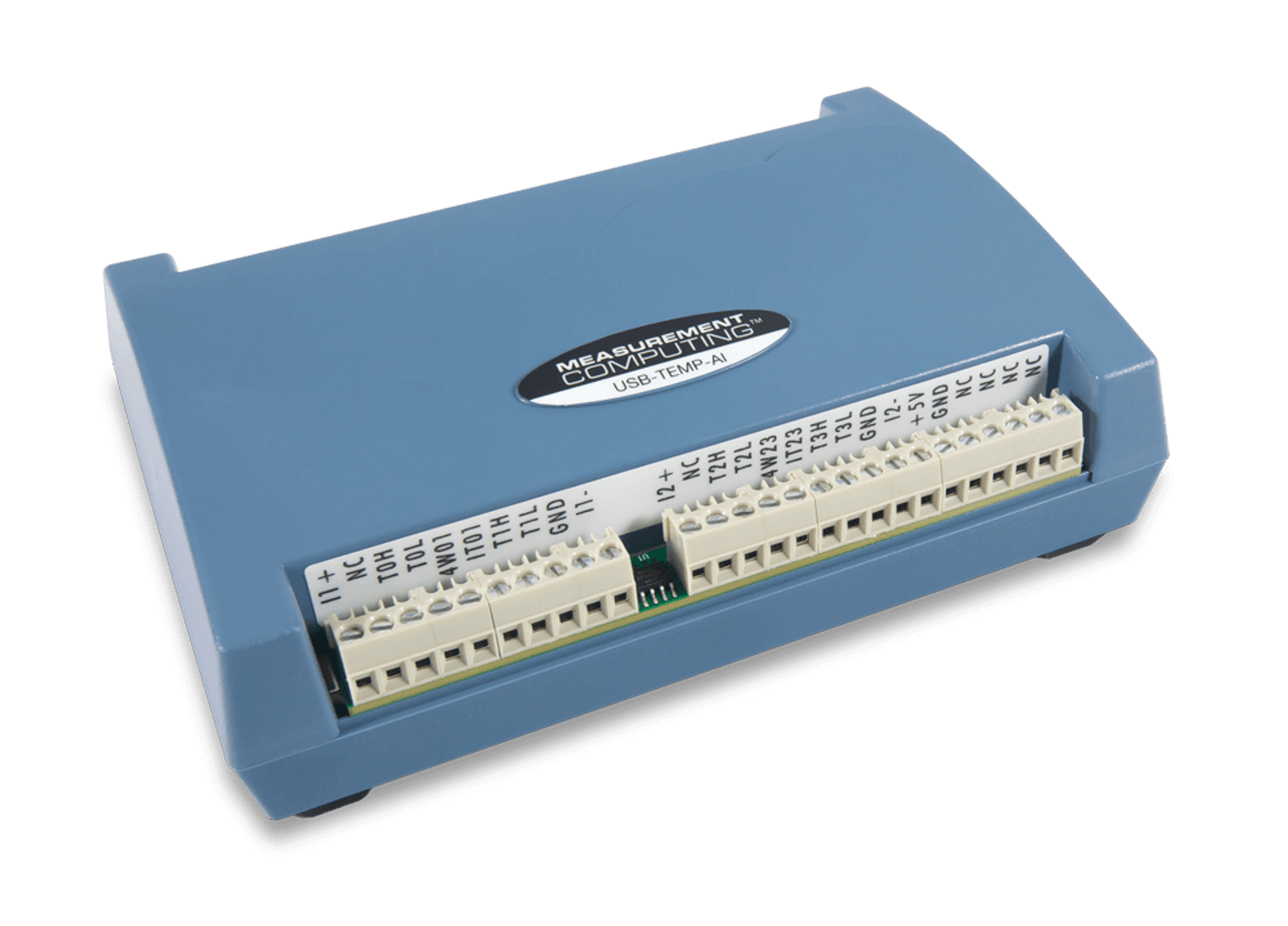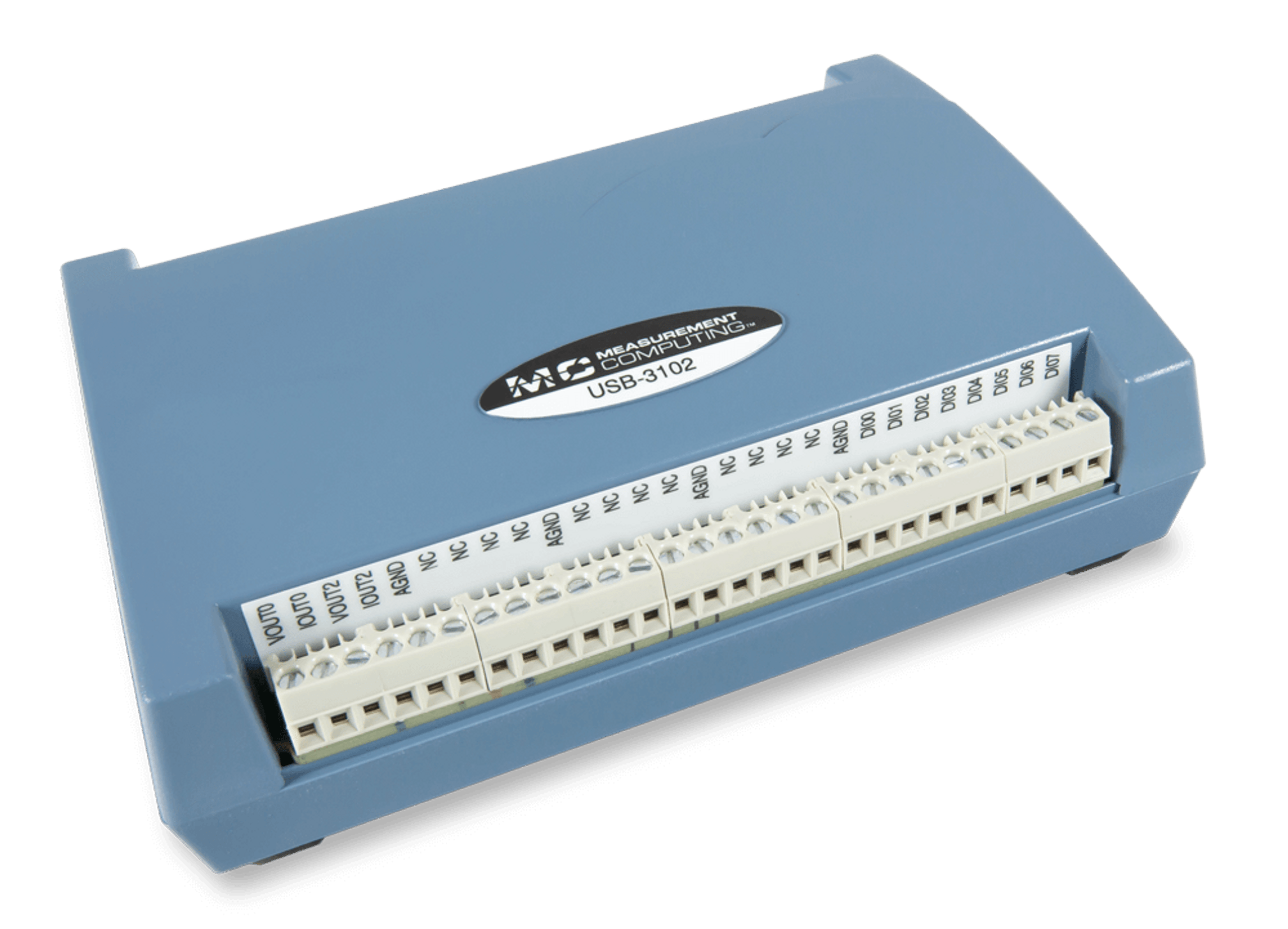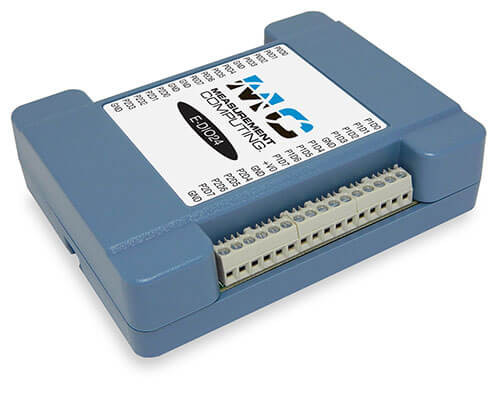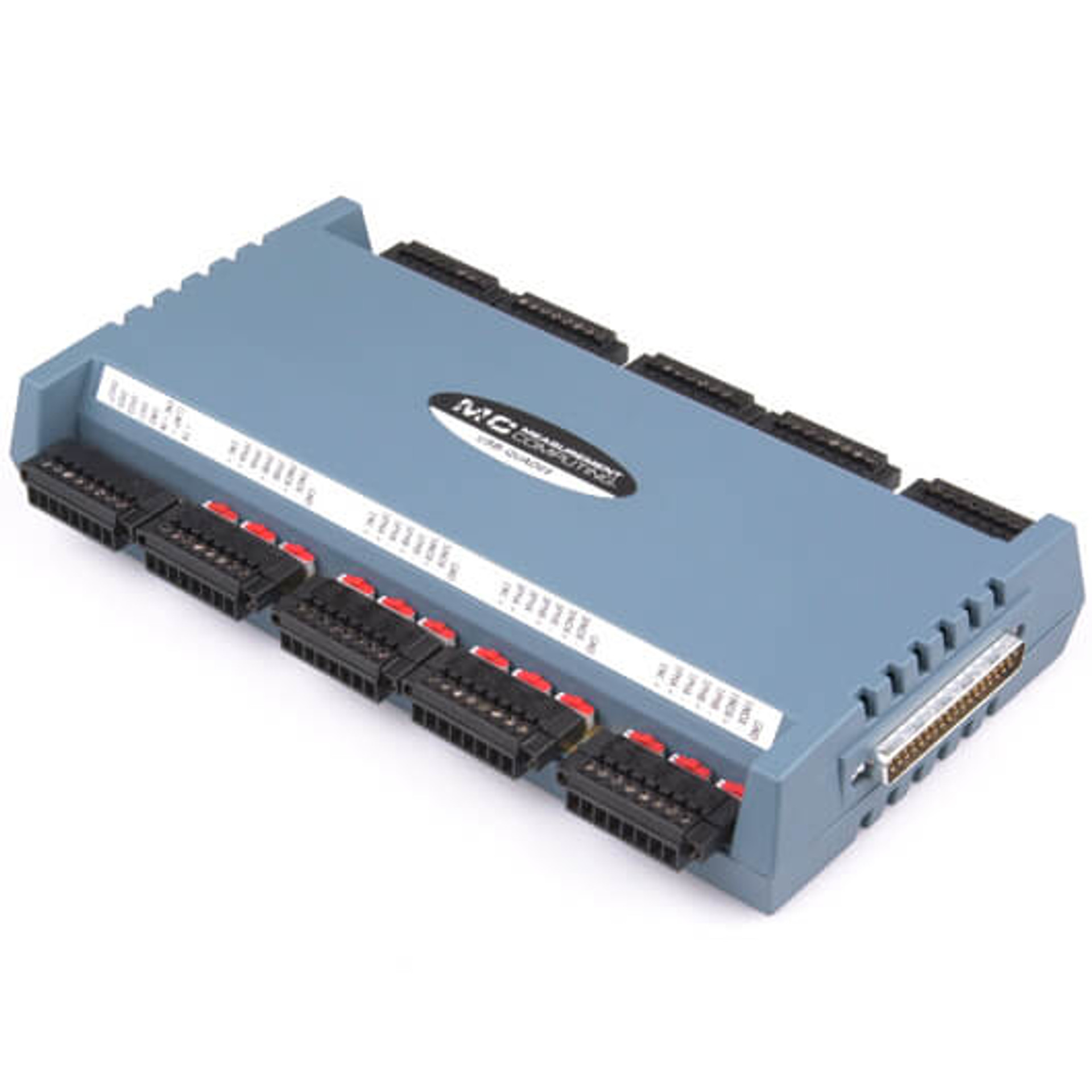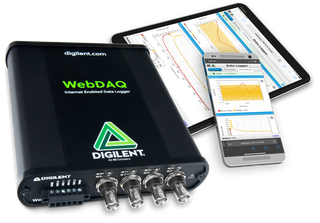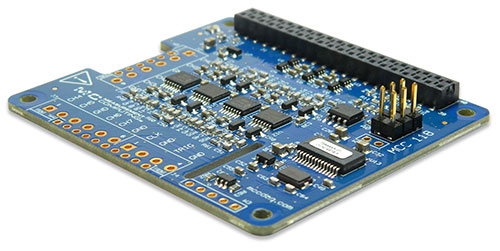Data Loggers
What are Data Loggers?
Data Logging is the recording of collected data of various environmental parameters over a period of time. Depending on the application, the data can be temperature measurements, voltages, current, humidity, or other signals of interest. Utilized across diverse industries such as agriculture, transportation, and research, using a data logger provides invaluable insights into trends, anomalies, and patterns, empowering users to make informed decisions based on comprehensive data analysis. Digilent offers data loggers for a wide variety of applications, from specialty temperature and humidity data loggers to flexible, high-speed logging systems. Battery powered data logger solutions allow you to record and monitor temperature, voltage, current, humidity and more using portable, stand-alone data loggers. Easy to use software is included for monitoring, exporting, and analyzing collected data.
Data Loggers by Type
Data logging devices vary in their sensor capabilities, measurement ranges, data storage capacities, power options, and interface options (USB, Ethernet, Raspberry Pi, and stand alone). Choosing the right type depends on the specific parameters to be monitored, environmental conditions, required accuracy, and data logging duration.
Multifunction
Multifunction data acquisition boards and modules are available with analog input and output, digital I/O, and counter/timers to suite your various application requirements. Software is included for out-of-the-box measurement capability. Drivers are also included for DASYLab®, NI LabVIEW™, Visual Studio® and more for easy integration.
Temperature
Our stand-alone temperature data loggers provide data logging and monitoring solutions for recording thermocouple, RTD, and thermistor measurements. These loggers can be used in a variety of applications, such as environmental monitoring or machine condition monitoring.
Analog Output
An analog output data logger is a specialized device that is capable of converting analog signals from sensors or instruments into digital data for recording and analysis. Unlike traditional digital data loggers that typically interface with digital sensors (which provide data in binary form), analog output loggers are designed to accept continuous analog signals. These signals can represent various physical quantities such as temperature, pressure, voltage, current, or any other measurable parameter.
Digital I/O
A digital I/O (Input/Output) data logger is a specialized device used for monitoring and recording the state changes of digital signals over time. Unlike analog output data loggers that deal with continuous analog signals, digital I/O loggers focus on capturing discrete digital events or states, such as the opening or closing of a switch, the activation of a sensor, or the presence of a digital signal.
Raspberry Pi® HATs
To bring professional-quality measurement products to the Raspberry Pi® platform, MCC has developed a series of DAQ HATs. These HATs offer similar specs and accuracy as traditional USB and Ethernet-based DAQ products from MCC with resolution up to 24-bits and sample rates up to 100 kS/s. Digilent offers five products designed for Test and Measurement applications that conform to the Raspberry Pi HAT standard. These devices provide data acquisition features like analog and digital I/O in a small, stackable format.
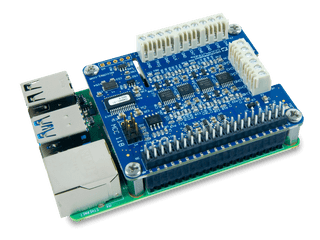
Counter/Timer
A counter/timer data logger is a specialized device used to monitor and record events based on counting or timing mechanisms. These loggers are designed to interface with sensors or devices that produce pulse signals, allowing them to count the number of pulses or measure the time intervals between pulses. This functionality is particularly useful in applications where precise event counting or timing is critical.
Sound and Vibration
Sound and vibration data loggers are specialized devices used to monitor, record, and analyze sound levels and vibrations over time. These loggers are equipped with sensors that capture acoustic signals (sound) and mechanical oscillations (vibration), providing valuable data for various applications.
OEM Board-Only
As a leading supplier of OEM DAQ and Data Logger solutions, we offer high-quality, cost-effective products backed by a worldwide sales and support network. We're here to assist with evaluating a product or to discuss your application. Our OEM engineers will assist you through all phases of your product’s life cycle.
Data Logger Interfaces
Each interface available from Digilent has its strengths depending on the specific requirements of the data logging application, such as data volume, remote accessibility, integration capabilities, and power constraints. Choosing the right interface or combination of interfaces depends on factors like data transmission speed, distance, power requirements, and the need for remote monitoring and control.
USBUSB interfaces on data loggers enable direct connection to a computer for data retrieval and configuration. Many data loggers use USB for initial setup, downloading logged data, and firmware updates. USB is convenient for local data access and management.
Raspberry Pi®A Raspberry Pi can be used as the core processor in a data logger system. It can interface with sensors, log data locally on its storage, and communicate over various interfaces like USB, Ethernet, and wireless (Wi-Fi or Bluetooth). Raspberry Pi-based data loggers are versatile and can be customized with different sensors and software to meet specific data logging requirements.
Ethernet & RemoteEthernet interfaces on data loggers enable remote access to logged data and device management. This allows data loggers to be integrated into larger networked systems for centralized monitoring and control. Ethernet interfaces are beneficial for applications where data needs to be accessed from multiple locations or integrated with existing network infrastructure.
Stand AloneStand-alone data loggers are ideal for remote or isolated locations where direct access to a computer or network is impractical. They can log data over extended periods, store it locally, and may offer interfaces like USB or Ethernet for occasional data retrieval or configuration updates. Some stand-alone data loggers also support wireless communication (e.g., cellular or satellite) for remote data access.
Data Logger Use Cases
Data loggers find application in numerous fields:
Industrial Applications:
- Manufacturing Process Optimization: Monitor key parameters like temperature, pressure, and vibration to optimize production lines and ensure consistent product quality.
- Regulatory Compliance: Data loggers provide reliable documentation for meeting environmental or safety regulations in various industries.
- Preventive Maintenance: Schedule maintenance based on collected data to prevent equipment failures and costly downtime.
Environmental Monitoring:
- Climate Research: Record climatic data like temperature, humidity, and precipitation for long-term research projects.
- Environmental Tracking: Monitor changes in air quality, noise levels, or water pollution for environmental impact studies.
- Remote Ecological Monitoring: Track data in remote locations, essential for studying wildlife or ecological processes.
Research and Development:
- Scientific Experimentation: Capture precise data sets for scientific experiments in laboratories or field studies.
- Trend and Pattern Analysis: Analyze collected data to identify trends, correlations, and patterns in controlled environments.
- Customizable Data Logging: Program data loggers to meet specific research needs, ensuring flexibility for unique projects.
FAQ
Here are some commonly asked questions about data loggers:
How do I choose the right data logger model for my specific needs?
Consider the type of data you want to collect, the desired sampling rate, storage capacity, and environmental factors. Explore Digilent’s data logger selection or contact our technical support team on our forum for personalized recommendations.
How can I get customer support or assistance with technical inquiries?
Digilent is committed to providing exceptional customer support. We offer comprehensive online resources, including user manuals, application notes, and troubleshooting guides. You can also reach our technical support team on our forum.
I'm interested in a custom build for a specific application, how do I go about procuring the proper products?
We offer tailored OEM solutions and will work with you to find the perfect fit! Visit our OEM page for more information.
I'm a professor at a university and interested in incorporating your products in my classes, do you offer any discounts?
We do have special pricing for students and educators! Visit our Academic page for more information.

